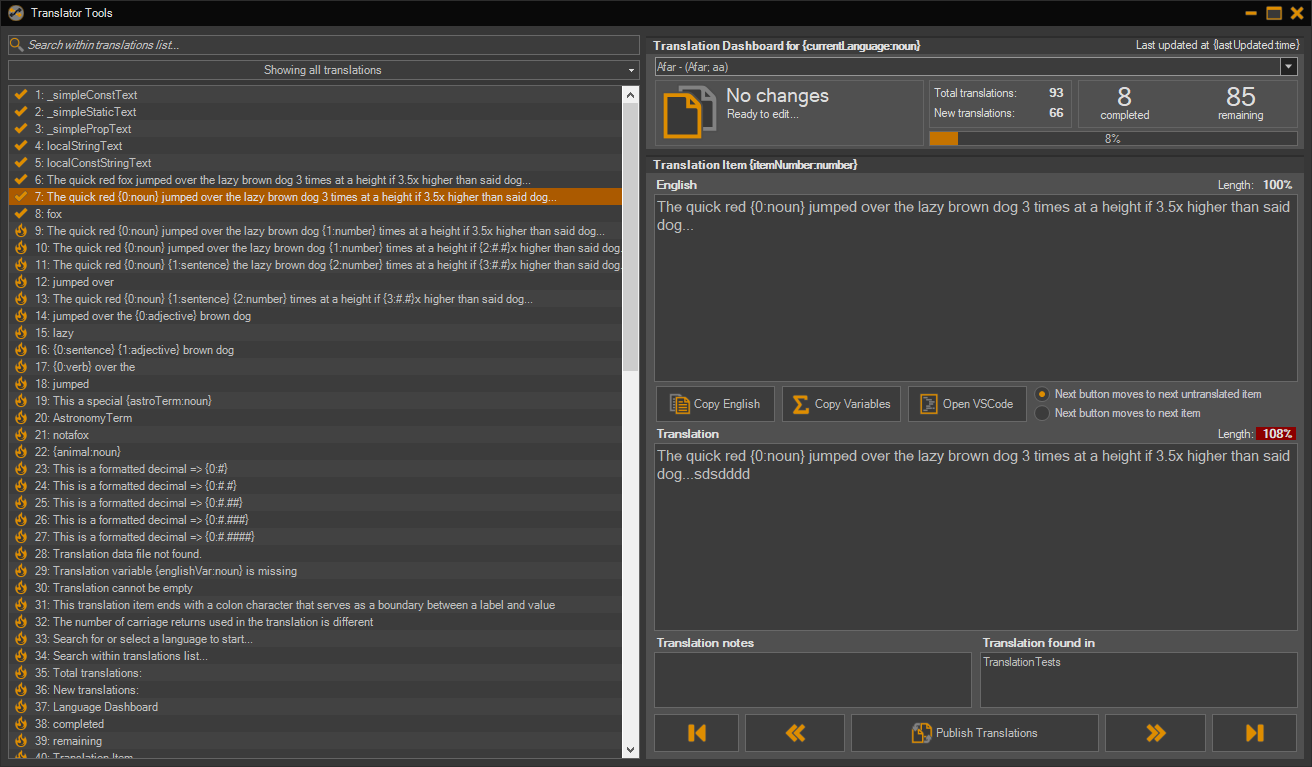Hello Translators,
Based on feedback here and certainly requests we have received over the years, we have been hard at work building the framework to support community-based translations. By “community-based” we mean that translators are not dependent upon Main Sequence Software (MSS) for almost any part of the process. Once you have been formally identified as a SGPro Translator, you will be able to:
- Work to translate all English text in SGPro to your language
- Upload and publish your work for others to use
All users are free to download whatever language translation packs they’d like to use and none of these resources are part of a SGPro release. In other words, the entire process is almost completely separated from the SGPro release cycle.
Note: You can absolutely publish partial translations. For any English text that is not found in the translation resources, the English will continue to be displayed.
We have taken a pretty significant amount of time to develop a set of tools that translators can use.
These tools are designed to:
- Quickly identify missing translations and the overall completeness of the language
- Quickly identify if a new release of SGPro added new text to be translated
- Quickly find a specific item (maybe fixing a typo or similar)
- Quickly identify, in general, the areas of SGPro that the text is used
- Show any notes from MSS about the translation
- Allow a translator to make their own notes about a translation item
- Expedite the translation process and identify errors in the translation
- Publish the translations for general use by other users
- Show any differences in the length of the translation
- Show, at a glance, the status of your work (e.g. if it has been published or not and more)
- Identify resource conflicts if multiple people are working on the same language
Here is a quick preview of the tool set:
All of this will appear in formal documentation… this is just a preview.
Some notes about translating:
- Size is important. It is unfortunate, but true… in many areas throughout SGPro, the length of text is constrained by the interface. Having translation text that is significantly different from the original English text may result in a situation where the translation is now misaligned with other UI elements or maybe a situation where the translated text is clipped. This will often be the most difficult part of translating. We are working to make the areas where the translations are displayed as easy to locate as possible (so you can check the results of your work). In general, you’ll want to stay as close to the original English length as possible even if it means using different words or abbreviations. If it just can’t be accomplished we will absolutely work with you to find a solution that will work even if means changing the layout.
- A lot of the translations are simple. For instance, the word “Warning”. Nothing complex here…
- Some translations use variables. A variable is essentially a part of the the translation that cannot be known in advance during the translation process. Some examples include numbers, time of day or even other words.
Because languages have different rules governing pronouns, articles, adjective order and verb conjugation, we have attempted to give variables as much context as possible so that you can better understand how to position a variable in the translation. Here is an example… lets say the final displayed English in SGPro is:
Hello, I have 0 pants and my angry mother is on the beach.
The translation presented to a translator looks like this:
Hello, I have {numPants:number} pants and my {emotion:adjective} mother is on the beach.
A translation to Spanish may look like this (forgive me if this is wrong, my Spanish is not good, but you get the idea)
Hola, tengo {numPants:number} pantalones y mi madre {emotion:adjective} está en la playa.
Notice that the adjective “angry” is easily moved from before to after its noun.
@Soren @Mssstar Or anyone else interested, please let us know if you can think of anything else that would be helpful to translators.

